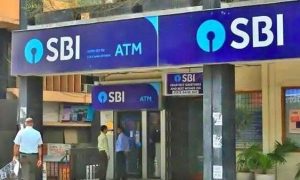As the financial year 2018-19 is going to end in a few days, it is time for a quick review of your tax-saving measures and see if there is any scope left to save some more taxes through swift actions before March 31, 2019.
To know if there is any scope to save more taxes, you have to first calculate your total income, which includes salary, income from business or profession, income from house property, capital gains and income from other sources like interest, family pension etc.
Once you calculate your net income, you will be in a position to determine how much investments you should make to minimise the taxable income.
The major sections of the Income Tax Act, under which a normal person may save maximum taxes through expenses and investments, are 80C, 80CCD (1B) and 80D having maximum limits of Rs 1,50,000, Rs 50,000 and Rs 1 lakh, respectively.
Section 80C
If you are a salaried person, first calculate how much deductions were made from your salary for retirement benefits, like – National Pension System (NPS) or Employees’ Provident Fund (EPF) or Contributory Provident Fund (CPF) or General Provident Fund (GPF) – during the financial year.
If you have enrolled yourself for any higher study or in case you have children, calculate the tuition fees paid (excluding any payment towards any development fees or donation or payment of similar nature) at the time of admission or thereafter to any university, college, school or other educational institution situated within India for the purpose of full-time education for yourself and/or any two of your children.
In case you have purchased a house on loan for self occupancy, calculate the amount of home loan principal repaid during the financial year.
Once you calculate the above figures, add them and deduct the result from the maximum ceiling of Rs 1,50,000. It will give the amount that you need to invest to avail full tax-saving benefits u/s 80C.
Now, compare the figure with your existing investments in Public Provident Fund (PPF), Sukanya Samriddhi Yojana (SSY), life insurance, annuity plans, Unit Linked Insurance Plan (ULIP), Equity Linked Savings Scheme (ELSS), National Savings Certificates (NSC) and 5-year Fixed Deposits (FDs).
If the existing investments are sufficient, you don’t have to invest any more to save taxes. Otherwise, in case there is any shortfall, invest the amount in any of the above instruments as per your long-term financial requirements.
Section 80CCD (1B)
Under this section, you may voluntarily invest in NPS Tier-I Account and avail deductions up to Rs 50,000 from your taxable income. If your taxable income before 80C, 80CCD (1B) and 80D deductions is more than Rs 5,50,000, you may save more taxes by investing in NPS Tier-I Account voluntarily.
Section 80D
A senior citizen taxpayer may avail maximum deduction of Rs 1 lakh under this section by paying health insurance premium for his/her family and for his/her parents. However, those taxpayers, who are not senior citizen, may save up to Rs 25,000 by paying health insurance premium for their family and another Rs 25,000 on premium of their parents (which will be up to Rs 50,000 if any of the parent is senior citizen).
Along with health insurance premium, payments made up to Rs 5,000 each for your family and for your parents on preventive health checkup are also eligible for deductions under this section, but within the overall limits.
So, according to your and your parents’ age, calculate the maximum amount you may save by paying health insurance premium and how much premium you have paid to save maximum amount of tax.
In case of any shortfall, you may a take policy to cover critical illnesses or specific diseases like cancer or dengue etc. Otherwise, you may go for preventive health checkups, if not done.
But remember, whatever you do to save more taxes, you have to do it by March 31, 2019.
Moreover, you should also remember that the motive of investments are not just to save taxes, but to fulfill your financial goals and protect your family from and unforeseen adversities. So, you should first do you financial planning and invest accordingly.
For more updates: Like us on Facebook and follow us on Twitter & Instagram





































